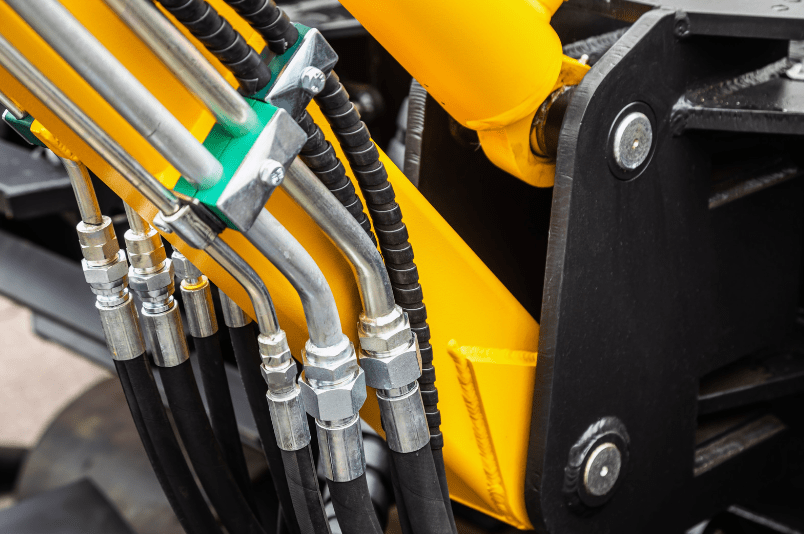In hydraulic system design, the devil is often in the details, and one crucial detail that is easy to overlook but is absolutely critical to your system success is filtration. In this article, we’ll look at why the appropriate filtration systems are not just a nice thing to have but are the lifeblood of your hydraulic system.
Why filtration matters
Hydraulic systems aggregate a wide range of components and subsystems that each need to be in peak condition for the system as a whole to achieve optimal performance. Filtration facilitates this by ensuring that your machinery is clean, efficient, and ready for action at all times, by preventing harmful contaminants from entering your oil and hydraulic fluid. Without adequate filtration measures, a steady buildup of contaminants can impede the operating efficiency of your system, resulting in downtime, lost productivity, and increased lifetime maintenance costs. Like many issues experienced by hydraulic systems throughout their lifetime, filtration issues are cheaper to address proactively at the design stage, and predicting the types of issues that might go wrong will also save you (or your customers) money and time on servicing long term.
How to ensure adequate filtration for your hydraulic system
The following considerations will help you select the correct filtration solution for your hydraulic system:
- Filter sizing: The size of your filter should be compatible with the system flow rate, working pressure, fluid type, and other operational parameters. An incorrectly sized filter will either fail to catch contaminants effectively or even impede the system’s performance.
- Pump flow rate: The flow rate of the filtration device should align seamlessly with the pump’s flow rate to prevent the system from becoming starved. Underperforming filters can deliver inadequate filtration, leaving your hydraulic system vulnerable to damage from contaminants.
- Pipe size: The size of your pipes may impact the effectiveness of your filtration system, with larger pipes requiring bigger or additional filters to ensure that all fluid passing through is adequately filtered.
- Working system pressure and fluid type: Some hydraulic filters are better suited for higher pressure systems, while others are designed for specific fluid types, such as standard hydraulic fluid or petroleum-based products. Check with the filter manufacturer to verify whether your selected mesh or filtration medium is compatible with your system pressure or hydraulic fluid type.
- Viscosity: The viscosity of your hydraulic fluid will significantly impact the filtration process. High viscosity fluids, in particular, can prove challenging to filter as they may require more energy to pass through the filter, possibly slowing down your filtration rate.
- Type of pump: The type of pump specified in your system can also influence your filtration needs and can impact the longevity and efficiency of your application. For example, piston pumps can be more susceptible to damage from contamination then gear pumps and, therefore, require a more stringent approach to filtration.
- System operation: The operating parameters of your system – e.g. whether it is designed for continuous, intermittent, or infrequent operation – should also be considered when choosing a filtration solution. Continuously operating applications require robust filters that can handle higher volumes of fluid without needing frequent replacement, whereas infrequent operation systems may benefit from filters designed for long-term storage, in order to avoid contamination during periods of inactivity.
- Outdoor or indoor system: Finally, whether your hydraulic application is intended to operate indoors or outdoors can also affect your filtration strategy. Outdoor applications will be exposed to more contaminant sources, especially systems designed for use in construction, manufacturing, and heavy industrial contexts – so you’ll need to factor in a tough filtration solution that can handle increased levels of debris and dust. Indoor applications may, conversely, face different but equally challenging contamination environments, such as metal particles from machinery wear, or exposure to corrosive chemicals.
Find out more
Specifying adequate filtration for your hydraulic system design requires a thorough understanding of various factors. For support designing and implementing an effective filtration strategy to enhance your application’s performance, extend its service life, and minimise unscheduled downtime, please get in touch with one of our hydraulic specialists today by calling 01353 721704.
Image source: Canva


